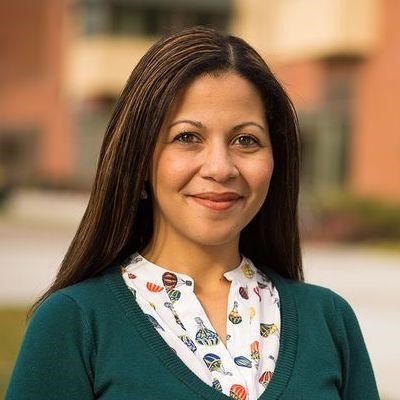The African Studies Students’ Association of McGill (ASSA) hosted a talk by professor Debra Thompson on Jan. 27 titled “The Great White North: Blackness in Canada.” An associate professor in the political science department and Canada Research Chair in Racial Inequality in Democratic Societies at McGill, Thompson spoke about the under-valued and often obscured history and contemporary politics of being Black in Canada—ideas also expanded on in her forthcoming Sept. 2022 book, The Long Road Home.
Thompson began her talk by providing historical context on the oft-forced Black migration to Canada, surfacing the names of some of the first Black people who were enslaved in the country. Olivier Le Jeune was the first person to be bought and sold in Canada in 1629. He was between six and nine years old.
Thompson explained that in examining Black experiences, it can be harmful and misleading to compare the histories of slavery and racism in the U.S. and Canada, as people tend to falsely perceive Canada’s history as less violent or significant.
“A lot of Canadians don’t know, or don’t like to admit, that slavery existed here and my sense is that it’s because, or at least partially because, of a spectre of American slavery,” Thompson said. “On the eve of the Civil War […], there were more Black folks enslaved in the U.S. than the population of Canada at the time.”
Thompson explained how, despite the diversity of Canada’s Black communities, the flourishing tradition of Black Canadian scholarship can act as a unifying force in the fight against white supremacy. Canadian scholars use the oxymoronic term “absented presence” to describe how Canadian culture simultaneously attempts to erase Black Canada while relying on it to prove Canada’s supposed multiculturalism.
“There are active agents and there are active discourses […] which work together to give the impression that there are no Black people in Canada, that Blackness is recent, that we don’t really belong,” Thompson said. “We are interlopers on this great Canadian experiment, in the ‘Great White North.’ The ‘presence’ part of ‘absented presence’ […] talks about the ways that so many narratives of Canadian identity depend on our existence, even as they erase us.”
In the context of Quebec, Thompson noted the rampant appropriation of Black activist rhetoric in nationalist Francophone discourse. She pointed to Pierre Vallières’ infamous 1968 analysis of the Quebecois as the “white N-words” of America.
“White Francophones have often used the language of Black freedom struggles to describe their own conflict with Anglophone Canada and it is so problematic,” Thompson said. “There are literally Black people in Canada, in Montreal, fighting […] rampant anti-Black racism […] without any kind of platform to counter the appropriation of this language, this anti-colonial, Black, freedom struggle language that white Francophones have essentially stolen and used as their own.”
ASSA co-president Leïla Ahouman, BA ‘21, and vice-president Academic Laïka Decelles, U3 Arts, spoke to The McGill Tribune after the event, explaining that the ASSA works to emphasize and spotlight Black academia. The pair highlighted Uhuru—the McGill Journal of African Studies—and discussed the importance of Black student-faculty relationships.
“It’s the connection between professors and students that’s missing,” Ahouman said. “And being of African descent [or] from the diaspora, what’s difficult is we rarely, if ever, have the chance to learn from our own. This is very sad because we are often faced with perspectives of our own lives, of our own peoples, from people outside of our cultures, and things being said are not always respectful.”
Decelles added that she believes the ASSA plays a vital role beyond the McGill community as well, acknowledging that universities tend to discount and overlook Black scholarship.
“One important point to highlight is to have Black bodies and academia together,” Decelles said. “There’s this long history of being secluded and marginalized and put aside. I think that the ASSA is just great for its members that it’s representing, but also […] it offers a platform in Montreal for others to be able to see Black scholars share their thoughts.”









